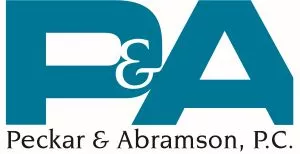The end of the year is upon us, and many shareholder or limited liability company agreements have built-in mechanisms for the forced buyout of a deceased shareholder's interest. The "Certificate of Agreed Value" is often used in such agreements to establish a mechanism for shareholders or members to establish an agreed-upon value for the company's shares, to be executed in a certificate at the end of each tax year.
In the nearly 30 years that I've handled shareholder disputes, I've seen many of these provisions. Unfortunately, I have had several litigated matters where the shareholders did not follow this procedure. A new case from the U.S. Court of Appeals for the Eighth Circuit which is now destined for review by the U.S. Supreme Court ("SCOTUS"), demonstrates that ignoring such provisions can have real tax consequences for the estate of a deceased shareholder.
Connelly v. U.S.
In Connelly v. U.S., No. 21-3863 (8th Cir. June 2, 2023), the Court affirmed the decision of a district court which held that the fair market value of stock in a closely-held corporation, for purposes of valuing the stock interest in the corporation held by the estate of a deceased shareholder, included the full value of key-man life insurance proceeds that were received by the corporation for the intended purpose of redeeming the deceased shareholder's stock interest.
In Connelly, a closely-held corporation had obtained $3.5 million in life insurance on its two shareholders (brothers), and their shareholders' agreement required that the corporation use the proceeds to redeem that shareholder's shares upon death. One of the shareholders subsequently died, and the IRS assessed taxes on his estate, which included his stock interest in the corporation. The IRS had decided that in valuing the estate, and the stock interest now owned by the estate, the fair market value of the corporation was to include the life insurance proceeds intended for the stock redemption. This resulted in additional tax liability of $1 million to the estate, which then sued for a refund.
"Certificate of Agreed Value"
The lesson learned by the surviving shareholder in Connelly was that the provision in the shareholder's agreement requiring the shareholders to annually arrive at a "Certificate of Agreed Value" was not mere window dressing. Nor was the backup provision which established an alternative method for arriving at a fair value determination. As explained in Connelly, those provisions were intended to establish a fixed value in such a manner that it would avoid the kind of scrape they ended up in with the IRS.
In this regard, 26 U.S.C. 2703(a) says that the value of the stock would be determined "without regard to any option, agreement, or other right to acquire . . . the property at a price less than the fair market value" or to "any other restriction on the right to sell or use such property." This section provides an exception, however, if an agreement meets the requirements of subsection (b) of that statute, which allows certain agreements to fix the value if they are part of a bona fide business arrangement and are not a device to transfer property to a decedent's family for less than full and adequate consideration.
Because the two brothers failed to follow the "Certificate of Agreed Value" procedure, and because the surviving brother and the estate subsequently failed to follow the alternative method for arriving at value (through independent appraisals), the IRS was correct to determine a valuation of its own which included the full $3.5 million in insurance proceeds in determining the fair market value of the corporation's shares.
Clear Message
It remains to be seen where Connelly will end up after SCOTUS hears the case. But what is clear is that shareholders of a closely-held corporation should closely adhere to the requirements of their agreement to establish a certified agreed value each year and, absent that, where a triggering event occurs for a buyout, should engage competent counsel to ensure that the valuation mechanism of the agreement is closely followed.
The content of this article is intended to provide a general guide to the subject matter. Specialist advice should be sought about your specific circumstances.

